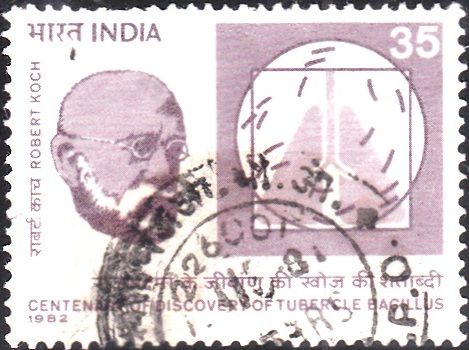
India on Tubercle Bacillus Discovery
A commemorative postage stamp on the Centenary of Robert Koch‘s Discovery of Tubercle Bacillus (TB) :
 Issued by India
Issued by India
Issued on Mar 24, 1982
Issued for : Indian P & T Department is happy to issue a postage stamp to commemorate this occasion.
Description of Designs : The stamp has been designed by A. Ramachandran. First day cover and cancellation have been designed by Charanjit Lal.
Type : Stamp, Postal Used
Colour : Red Purple
Denomination : 35 Paise
Overall size : 3.91 x 2.90 cms.
Printing size : 3.55 x 2.54 cms.
Perforation : 13 x 13
Paper : Unwatermarked P.G. Matt coated stamp paper
Number printed : 20,00,000
Number per issue sheet : 35
Printing process : Photogravure
Printed at : India Security Press
Name : Robert Heinrich Herman Koch
Born on Dec 11, 1843 at Clausthal, Kingdom of Hanover, Germany
Died on May 27, 1910 at Baden–Baden, Germany
About :
- The epoch making discovery of Tubercle Bacillus by Robert Koch will always remain a landmark in the fight against dreaded disease. Tuberculosis was the ‘captain of the men of death’ all over the world in Robert Koch’s time. Although this disease was known since time immemorial, its cause was not known. Some thought it to be hereditary, others attributed it to deficiencies in food, hygiene, housing, etc. When Robert Koch demonstrated that the disease is caused by tubercle bacillus and is transmitted from person to person by this micro-organism, it not only initiated research to find out drugs which could kill this microbe, but also laid the foundation for evolving proactive measures concentrating on blocking the channels of transmission. It is because of these two measures that tuberculosis has been greatly controlled.
- Robert Koch was born on 11th December, 1843 in the village Clausthal in the State of Hanover in Germany and qualified as a doctor from Göttingen University in 1866. His first outstanding achievement was the discovery and isolation of the micro-organism responsible for Anthrax. In 1881 he attended the first International Medical Congress in London where he was so stimulated on hearing of the world-wide ravages of tuberculosis that he returned determined to find the causative organism of this scourge. 17 years earlier, a French scientist, Villemin, divined but never proved the possibility of an invisible agent which was responsible for the causation of tuberculosis and its transmission from person to person and animal to animal. Robert Koch isolated this agent, the microbe, and proved it to be the cause of tuberculosis. He called it Tubercle Bacillus. When the result of his discovery was announced to the world on 24th March, 1882, Robert Koch became an internationally famous figure. An institute of Microbiology and Hygiene was established in Berlin and Robert Koch was appointed as its Director.
- Koch continued to make many more signal contributions in the field of microbiology. He visited India in 1886 and was also responsible for the discovery of the cause of Cholera. He travelled extensively all over the world in search of microbes responsible for other infectious diseases. In 1904 Robert Koch retired from the Institute of Infectious Diseases but continued to be universally honoured. He was elected member of the German Academy of Sciences and received Noble Prize for Medicine in 1905 for his work on tuberculosis. He died on 27th May, 1910 as the result of sudden cardiac arrest at the age of 67.
- The Centenary of the Discovery of Tubercle Bacillus is being celebrated with the dual object of honouring the great man who discovered this bacillus and also highlighting the need for augmenting the resources and strengthening the health services and developing these in such a manner that control of tuberculosis is achieved as early as possible.
- Text by courtesy of Sponsors.


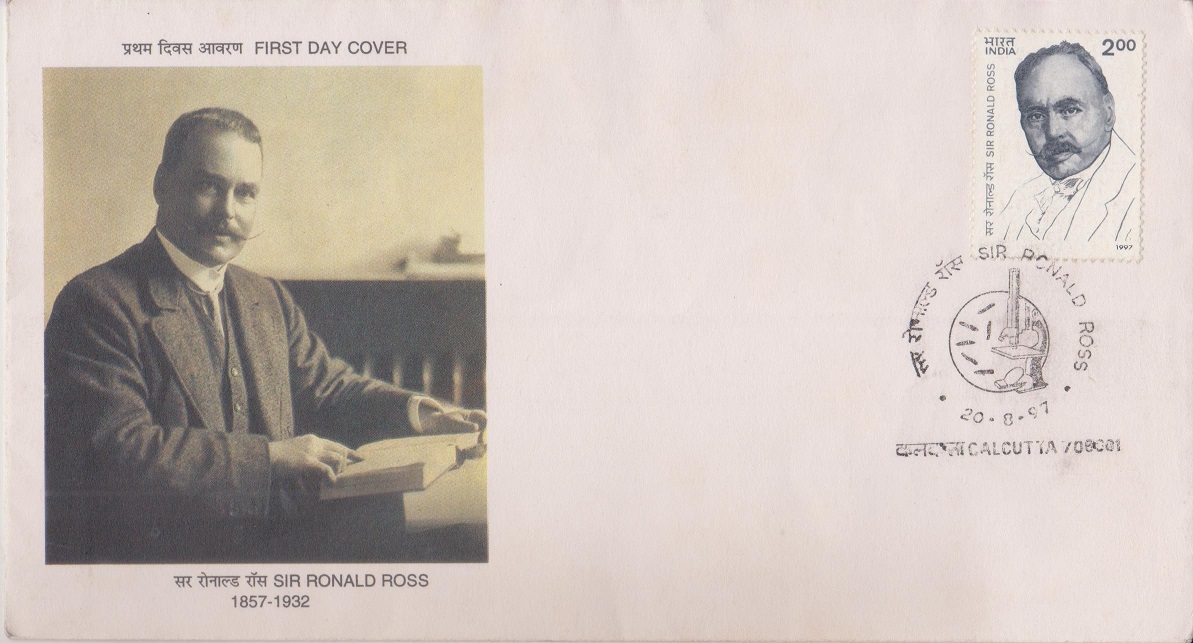
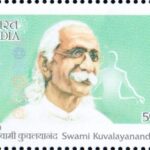
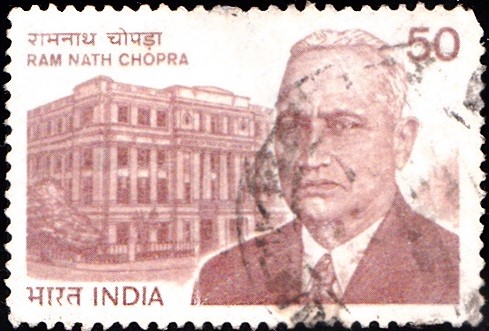
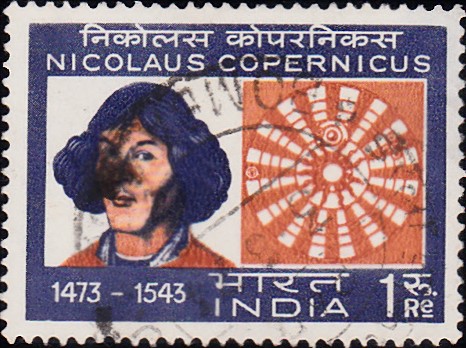
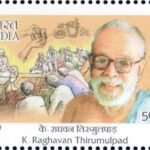

[…] year 1982 marks the centenary of the discovery of the tubercle bacillus by Robert Koch. The World Health Organization and International Union Against Tuberculosis join in celebrating […]
[…] are the UNICEF assistance programmes for the control of communicable diseases such as malaria, tuberculosis, yaws, trachoma and leprosy. The UNICEF is however not concerned merely with the control of […]
[…] Louis Braille eventually became a teacher in the school where he had been a student. He was admired and respected by his pupils but, unfortunately, he did not live to see his system widely adopted. He had always been plagued by ill health and in 1852, at the age of.43, he died from tuberculosis. […]
[…] health had worsened during his stay in England. In 1917 he contacted tuberculosis. He returned to India in 1919 but despite medical treatment, did not survive for long. He breathed […]